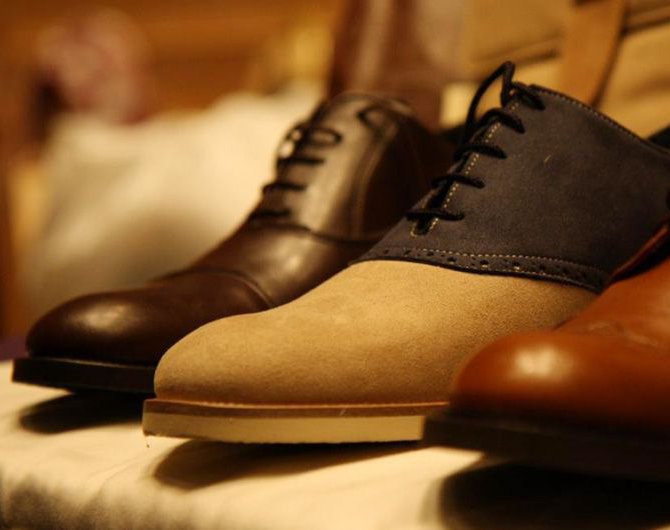Sri Lanka's exports of leather products and footwear were worth $49.8 million in 2022, leatherbiz informs. According to the Sri Lanka Export Development Board (EDB), there are seven tanneries operating in the country and the footwear industry directly employs about 20,000 people and indirectly includes 10 large exporting companies, 30 medium-sized companies and about 3000 small producers. It is able to produce up to 15 million pairs of leather shoes per year.
Sri Lankan footwear and leather product exporters to establish themselves as leading suppliers to global brands.
Renowned for producing a range of products from colourful rubber thongs to high-quality genuine leather shoes, Sri Lankan Footwear manufacturers have transcended from being a mere manufacturer to creative design and production solution provider to global buyers.
The local availability of high-quality resources like natural rubber to produce sole crepe and excellent leather; and sustainable production procedures have given Sri Lankan footwear manufacturers a competitive edge over the rest.
Apart from manufacturing processed leather, Sri Lankan leather product manufacturers also produce gloves, wallets, bags, purses, and other accessories for the export market under environment-friendly and sustainable production conditions.
From colorful rubber thongs to genuine leather shoes, Sri Lankan footwear exporters have already established themselves as quality conscious suppliers to well-known international brands.
The footwear industry has significant potential to be a key contributor to Sri Lanka's economy, and already provides high end products to Mark & Spencer, Bata France, H.H. Browns, Clarks, Aerosoles and Nike. A diverse range of shoes including canvas and rubber boots, thongs, sports shoes, and leather shoes are produced, using a variety of raw materials.
Sri Lanka is capable of producing up to 15 million pairs annually, excluding rubber thongs which alone is estimated to total between 27 and 30 million pairs annually. The footwear industry at present employs about 20,000 people directly and indirectly includes 10 large export companies, 30 medium scale companies and about 3000 small scale manufacturers.
Apart from manufacturing processed leather, the leather products industry includes the manufacture of goods such as gloves, wallets, bags, purses etc. There are approximately 5 large companies, 10 medium scale companies and around 1000 small enterprises.
Seven tanneries in the country produce 25 tons of leather every day, and most of the large companies have their own tanneries. High quality leather is also imported by manufacturers.
The footwear industry is similar to the garment industry in operational aspects. Both industries use similar accessories and skills, and both have transcended mere manufacturing with creativity and innovation through fashion. Footwear and leather products have gained a competitive advantage worldwide through product reliability, quality sustainability, competitively priced products. Skillful workmanship and a highly trainable workforce enhance the industry's growth prospects.
One of the key advantages enjoyed by the footwear industry is the local availability of high quality natural resources including rubber and sole crepe. Sri Lanka is the only country which produces and exports sole crepe without value addition. Encouraged by the push for `green' products worldwide, there is a great demand from international markets for unit soles manufactured from Sri Lankan sole crepe.
Major export markets for Sri Lankan footwear are Italy, UK and France, and other European Union countries. The industry continues to consolidate these existing markets while looking to enter emerging markets.
The industry's compliance with ethical and environmental standards attracts customers looking for sustainably produced goods. Sri Lankan soles are set to grace the feet of individuals all over the world.


